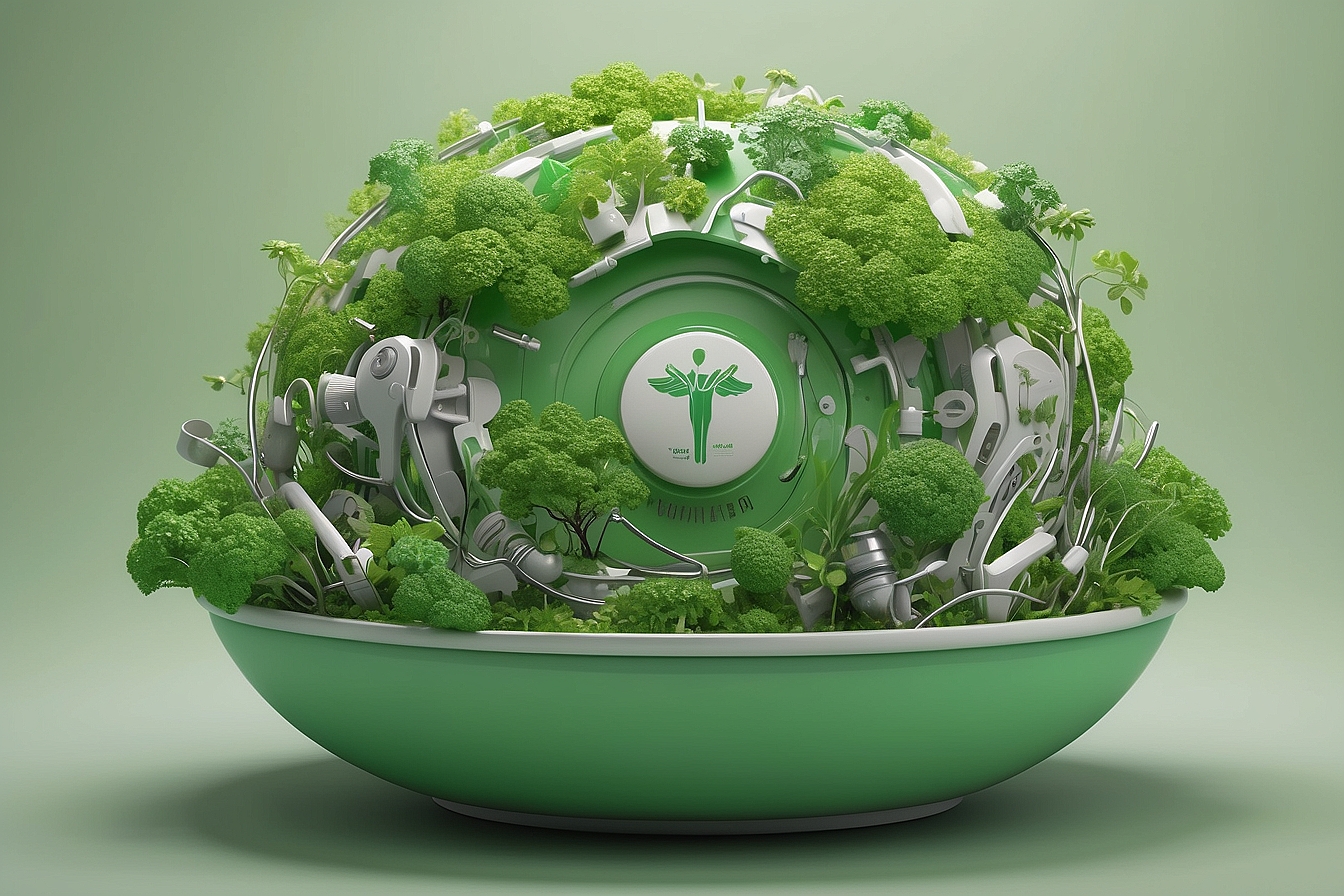In our modern, brisk world, it’s all too easy to feel a bit out of touch with the great outdoors. Like many others, we understand that urban life can sometimes be rather taxing; numerous studies have confirmed that being amongst nature can significantly dial down stress levels.
Our forthcoming article delves into the concept of eco-therapy and explores how connecting with Mother Nature’s restorative embrace can offer solace for our weary minds and souls. Join us on a journey to uncover your own serene haven amidst life’s hustle and bustle.
Key Takeaways
- Ecotherapy, also known as green therapy, is a form of treatment that involves nature-based activities to promote psychological healing and improve mental health. It includes various types such as horticultural therapy, forest therapy, wilderness therapy, animal-assisted therapy and green exercise.
- Nature – based therapies can significantly reduce stress levels and alleviate symptoms of various mental health conditions including depression, anxiety, PTSD and ADHD. Engaging with the natural world can lead to improved mood and an increase in overall wellbeing.
- Preparing for ecotherapy involves dressing appropriately for outdoor activities and being mentally ready for a therapeutic experience. During sessions, individuals may engage in mindful practices like gardening or guided meditation. Afterward, reflecting on the session helps integrate these positive experiences into daily life.
- While ecotherapy is generally safe for most people it might not be suitable for those with severe allergies or physical limitations that prevent engagement with nature-based activities. It’s crucial to consult a healthcare provider before starting any new therapeutic practice.
- The cost of participating in ecotherapy varies depending on factors such as the type of program or location; however there are resources available through organisations like AHTA and ANFT which provide assistance and information regarding affordable options for those interested in this approach.
What is Ecotherapy?
Ecotherapy is a form of nature-based therapy that harnesses the healing power of the natural world. With its roots in ecopsychology, it encompasses various types such as horticultural therapy, forest therapy, and wilderness therapy.
Definition
Ecotherapy, also known as nature therapy or green therapy, is a form of therapeutic treatment that involves activities in natural settings. We use this approach to help people establish a deeper relationship with the Earth and facilitate psychological healing through interaction with nature.
It’s grounded in ecopsychology, embracing the idea that our wellbeing is closely linked to our environment.
By engaging in ecotherapy activities such as forest bathing or horticultural practices, we not only enhance our mental health but also foster a sense of stewardship for the environment.
This practice acknowledges that humans are part of an interconnected ecosystem and promotes healing by integrating outdoor experiences into traditional therapeutic methods.
History
Ecotherapy, also known as nature-based therapy or earth-based healing, has a rich history dating back to ancient civilizations where natural surroundings were used for psychological healing.
This practice gained momentum in the late 20th century with the emergence of ecopsychology and the growing awareness of the mental health benefits associated with outdoor activities in nature.
Over time, ecotherapy techniques evolved to include various forms such as horticultural therapy, forest therapy, wilderness therapy, animal-assisted therapy, and green exercise. Today, ecotherapy continues to be an integral part of psychological healing in nature and is supported by numerous organisations and resources dedicated to promoting nature immersion for therapeutic purposes.
Types (Horticultural Therapy, Forest Therapy, Wilderness Therapy, Animal-Assisted Therapy, Green Exercise)
Ecotherapy includes various nature-based methods that promote healing and well-being. These include:
- Horticultural Therapy: Involves gardening and plant-related activities to improve mental health, physical well-being, and social skills.
- Forest Therapy: Also known as “Shinrin-yoku” in Japan, it involves immersing oneself in the forest environment to reduce stress, anxiety, and improve overall health.
- Wilderness Therapy: This type of therapy takes place in natural settings and emphasises survival skills, self-reliance, and personal responsibility.
- Animal-Assisted Therapy: Utilises interactions with animals to enhance emotional well-being, lower stress levels, and improve communication skills.
- Green Exercise: Combines physical activity with being outdoors to boost mood, reduce stress, and improve mental health.
How Ecotherapy Works
Ecotherapy works by encouraging a deep connection with nature, which can have significant positive impacts on mental health. Spending time outdoors and engaging in activities such as gardening or walking in the forest can help reduce stress and improve overall wellbeing.
Connection with nature
Spending time in nature provides a calming and grounding experience, allowing us to disconnect from the pressures of daily life. Engaging with natural environments through activities such as gardening, forest bathing, or hiking encourages mindfulness and relaxation.
These experiences can help reduce stress, improve mood, and promote overall mental wellbeing. Immersing oneself in nature enables a deeper connection to the earth and its rejuvenating qualities, providing a welcome respite from the hustle and bustle of modern living.
Engaging with nature-based therapies promotes an appreciation for the environment while offering therapeutic benefits. Exploring green spaces facilitates a sense of peace and tranquillity which supports emotional healing and resilience.
Impact on mental health
Spending time in nature has a positive impact on mental health. Engaging with the natural environment can reduce stress and improve mood, leading to enhanced overall wellbeing. Additionally, ecotherapy has been shown to alleviate symptoms of depression, anxiety, PTSD, and ADHD.
The calming effect of nature-based therapy can also provide pain relief for individuals experiencing physical discomfort. By embracing ecotherapy practices such as forest bathing or horticultural therapy, one can experience the therapeutic benefits of connecting with the natural world.
Nature-based therapy offers an opportunity for individuals to step away from the hustle and bustle of everyday life and find solace in natural surroundings. Through activities like green exercise or animal-assisted therapy, people can enhance their mental health while enjoying the healing benefits of outdoor environments.
Benefits of Ecotherapy
Experience improved mood and reduced stress, find treatment for depression, anxiety, PTSD, and ADHD, and see an increase in overall wellbeing and quality of life with ecotherapy. Plus, enjoy the potential relief from pain that comes with connecting to nature.
Improved mood and stress relief
Engaging in ecotherapy often leads to improved mood and stress relief. Being surrounded by nature, participating in green exercise, or spending time in a garden can have a positive impact on mental well-being.
Naturebased methods are known to promote relaxation and reduce anxiety, providing natural therapy benefits for those seeking an earth-based healing approach. Additionally, nature therapy benefits contribute to increased overall quality of life for individuals who appreciate the calming effects of outdoor therapy.
Embracing ecotherapy provides a unique opportunity for enhanced emotional well-being and stress relief while appreciating the beauty of our natural world. Moving forward, let’s explore how ecotherapy serves as a treatment for depression and anxiety.
Treatment for depression, anxiety, PTSD, ADHD
Nature-based therapy, such as ecotherapy, offers a holistic approach to treating mental health conditions like depression, anxiety, PTSD, and ADHD. Engaging with nature through activities like forest bathing or animal-assisted therapy can significantly improve mood and reduce stress levels.
Regular exposure to natural environments has been shown to alleviate symptoms of these conditions and enhance overall wellbeing. Incorporating ecotherapy into your routine may provide a refreshing alternative or complement to traditional treatment methods, allowing you to reconnect with the Earth while supporting your mental health.
Ecotherapy benefits individuals struggling with various mental health challenges by harnessing the healing power of nature. Embracing this form of earth-based healing encourages improved emotional resilience and fosters a renewed sense of hope for those seeking relief from these conditions.
Increased wellbeing and quality of life
Engaging with nature-based therapy enhances our overall wellbeing and quality of life. Spending time in natural surroundings boosts mental clarity, reduces stress levels, and elevates mood.
Engaging in activities like horticultural therapy or forest bathing helps us connect with the earth and its healing elements, fostering a sense of peace and contentment.
Additionally, immersing ourselves in ecotherapy can provide a renewed perspective on life, allowing us to appreciate the beauty surrounding us. Nature-based therapy empowers individuals to embrace a sustainable lifestyle while reaping the countless benefits nature has to offer.
This form of Earth-based healing supports our physical and emotional well-being, promoting harmony within ourselves and our environment.
Pain relief
Ecotherapy can provide pain relief by reducing physical discomfort and promoting relaxation through nature-based activities. Engaging in horticultural therapy, forest bathing, or green exercise can help alleviate chronic pain and improve overall physical well-being.
Many individuals report a reduction in muscle tension, headaches, and other symptoms related to stress and anxiety after spending time in natural environments. By connecting with the outdoors, ecotherapy participants often experience a decrease in perceived pain levels, contributing to an enhanced sense of comfort and tranquillity.
Participating in ecotherapy activities like gardening or spending time in green spaces has been shown to have positive effects on chronic pain management. Nature-based interventions are also known to mitigate the impact of various health conditions associated with persistent discomfort such as fibromyalgia or arthritis.
Safety and Side Effects of Ecotherapy
Ecotherapy is generally safe for most people, but it may not be suitable for those with severe allergies, physical limitations, or a fear of nature. It’s important to seek guidance from a qualified therapist before starting ecotherapy to ensure its suitability for individual needs.
Who should try it
Individuals seeking relief from stress, anxiety, or depression should consider trying eco-therapy. People who appreciate nature-based healing and are passionate about environmental conservation would benefit from exploring the healing effects of eco-therapy.
Those desiring an alternative form of therapy that promotes overall wellbeing and emotional balance can find solace in the restorative power of eco-therapy. If you champion earth-based healing methods and seek to enhance your quality of life through a connection with nature, eco-therapy may be just what you need.
Whether you’re struggling with mental health issues or simply striving to deepen your relationship with the natural world, engaging in eco-therapy can provide immense benefits.
Who should avoid it
While ecotherapy can be beneficial for many individuals, it may not be suitable for those who have severe physical limitations that prevent them from fully engaging in nature-based activities.
People with severe allergies to pollen, plants, or insect bites should also consider avoiding ecotherapy as it may exacerbate their allergic reactions and cause discomfort. Additionally, individuals with compromised immune systems or certain medical conditions should consult their healthcare provider before participating in outdoor activities for ecotherapy.
It’s important to prioritise personal health and safety when considering whether ecotherapy is the right approach for you.
What to Expect Before, During, and After Ecotherapy
Before ecotherapy, it’s important to prepare yourself mentally and physically for the experience. During ecotherapy, you can expect to engage in activities such as walking, gardening or animal-assisted therapy.
After ecotherapy, take time to reflect on your experience and continue to integrate nature into your daily life for long-term benefits.
Preparation
To prepare for ecotherapy, it’s essential to dress appropriately for the outdoor environment. Wear comfortable clothing and sturdy shoes suitable for walking or hiking. It’s also a good idea to bring along any necessary medical supplies, such as allergy medication or inhalers, and stay well-hydrated before the session.
Before heading out, take some time to mentally prepare by setting positive intentions and being open to the healing experience that nature can provide.
During ecotherapy, individuals should remain open-minded and be willing to engage with nature on a deeper level. Leave behind distractions like smartphones and electronics to fully immerse oneself in the natural surroundings.
During the therapy
Engage in mindful activities while surrounded by nature, such as deep breathing and guided meditation. Embrace the sensory experiences of the natural environment – feel the sun on your skin, listen to the rustling leaves, and breathe in the earthy scents.
Take part in interactive exercises like gardening or forest bathing to enhance your connection with nature. Practice grounding techniques to stay present and connected to the surroundings.
Immerse yourself fully in these experiences to reap the maximum benefits of ecotherapy.
Participate actively in group discussions and activities led by a trained therapist. Share your thoughts and feelings openly with others who are also seeking healing through nature.
Connect with fellow participants over shared experiences, fostering a sense of community and support within the therapy session. Be open-minded and willing to embrace new perspectives that may arise during interactions with both nature and other individuals undergoing ecotherapy alongside you.
After the therapy
After the therapy, it’s important to take time to reflect on the experience and how it made us feel. We should notice any changes in our mood, stress levels, or overall wellbeing. Perhaps we felt a sense of calm and peace or a renewed energy and connection with nature.
It’s also beneficial to integrate what we’ve learned into our daily lives by spending more time outdoors, practicing mindfulness in nature, or engaging in eco-friendly activities that support environmental conservation.
Moreover, finding ways to continue the healing process through regular exposure to nature can help maintain the positive effects of ecotherapy. Whether it’s tending to a garden, taking leisurely walks in the forest, volunteering for environmental causes, or simply appreciating the beauty of nature around us — each contribution adds up to both individual and collective wellbeing.
Cost
Participating in ecotherapy can vary in cost depending on the specific type of therapy and the location. For example, horticultural therapy sessions may range from £10 to £50 per hour, while retreats or wilderness therapy programmes may cost several hundred pounds for a weekend or week-long experience.
Additionally, some non-profit organisations offer low-cost or sliding scale options for those with financial constraints. It’s important to consider the value of the benefits gained from ecotherapy and explore various resources and organisations that may provide affordable or accessible options to support mental health and wellbeing through nature-based healing.
Moving forward, let’s delve into popular resources and organisations associated with ecotherapy that can help us access these transformative nature-based healing experiences.
Popular resources and organisations
After considering the cost implications, many people may be interested in exploring popular resources and organisations that offer ecotherapy. Here are some well-known resources and organisations for individuals looking to experience nature-based therapy:
- The American Horticultural Therapy Association (AHTA) provides information, education, and professional networking opportunities for those interested in horticultural therapy.
- The Association of Nature and Forest Therapy Guides and Programs offers training programs and a directory of certified forest therapy guides for those seeking this type of nature-based therapy.
- The Wilderness Therapy Association is dedicated to promoting safe and effective wilderness therapy practices through education, advocacy, and research.
- The International Association of Canine Professionals supports professionals who incorporate animal-assisted therapy into their practices, providing resources and networking opportunities.
- National Parks Conservation Association offers information on conservation efforts and opportunities to participate in environmental stewardship programs within national parks.
- The European Green Exercise Network promotes green exercise research, understanding, policy, practice, and activities throughout Europe.
- Earth-Based Institute provides education and training in earth-based healing practices for individuals interested in becoming ecotherapists or incorporating natural elements into their healing work.
Conclusion
In conclusion, eco-therapy provides a holistic approach to healing, utilising the power of nature. It offers numerous benefits for mental health and overall wellbeing. Embracing eco-therapy can lead to improved mood, reduced stress, and enhanced quality of life.
By fostering a deep connection with nature, individuals can find solace and healing in the natural world.
FAQs
1. What is eco-therapy?
Eco-therapy, also known as nature-based therapy or ecological therapy, is a way of healing through nature, where people find comfort and rejuvenation by engaging with the natural world.
2. How does being in nature help heal?
Nature healing involves spending time outdoors to reduce stress and improve mental health; it can make you feel more relaxed and connected to the earth.
3. Can I go on an ecotherapy retreat?
Yes, going on an ecotherapy retreat allows you to immerse yourself in nature-based therapy practices under guidance and can benefit your overall well-being.
4. Are there many benefits to ecotherapy?
Certainly! Ecotherapy has numerous benefits such as boosting mood, lowering anxiety, and fostering a sense of peace by connecting deeply with nature.





